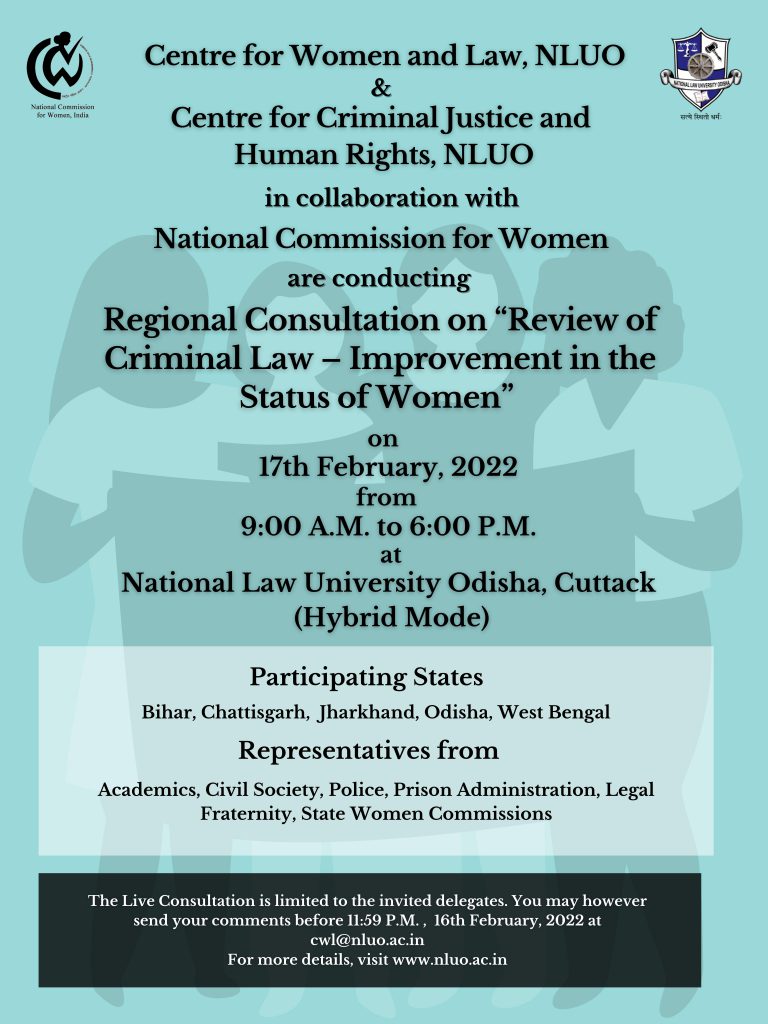“One-day Eastern Region Consultation on ‘Review of Criminal Law – Improvement in Status of Women’. “
11 Feb 2022
About the Consultation:<
Centre for Women and Law, National Law University Odisha is holding a One-Day Eastern Region Consultation on “Review of Criminal Law – Improvement in the Status of Women” on the request of National Commission for Women, India?n?strong>17th?ebruary 2022?em>from 09:00 am to 06:00 pm?/em>at NLUO Cuttack, Odisha (Hybrid Mode)<.?he NCW has already held two Consultations on the theme on online mode and has now decided to hold four regional Consultations in physical mode. This Eastern Region Consultation seeks to bring experts from the States of?disha, West Bengal, Chhattisgarh, Bihar and Jharkhand. The live consultation is limited to the invited delegates, however, we are open to receive comments on the issue from everyone through email.
This consultation would?ontribute to making holistic recommendation recognizing women as human beings with their own life experiences, responses, and perspectives in the criminal laws. Many women-specific provisions have been included in the criminal law and they continue to be subject of critical scrutiny by women groups as well men’s groups who accuse women of misusing those law. However, there can be no denial that gender neutral laws also apply to women. Still, there has been little examination of how the gender-neutral laws exclude women’s experiences in the way they are formulated. Hence, we believe that there is need to have a holistic view of Criminal Law’s conceptualization of women.
Most of the gender specific laws are focused on women as victims of crimes. As offenders, they are dealt with in the same manner as men and their conduct is judged by the standard of “reasonable man” which sometimes excludes gender in its construction and is either a ‘male standard’ or a ‘double standard’. The circumstances in which women commit crime are very different from those of men. For example, in the well celebrated case of?em>Kiranjeet Ahluwalia?rom England, she was subjected to long term violence by her husband whom she killed one night. The first criminal court held her guilty of murder, but the appellate court held her guilty of culpable homicide on the ground of diminished responsibility recognizing that battered women suffer from slow burn syndrome. This case had opened many academic discussions about how the male standard of behaviour, experiences and reactions form the basis of various definitions of offences. In India, however, this discussion is yet to begin.






